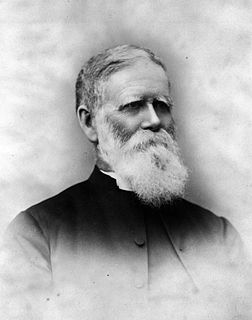A Quote by Harriet Martineau
Laws and customs may be creative of vice; and should be therefore perpetually under process of observation and correction: but laws and customs cannot be creative of virtue: they may encourage and help to preserve it; but they cannot originate it.
Related Quotes
However much pains may be taken to combine the soldier and the citizen in one and the same individual, whatever may be done to nationalize wars, never will it be possible to do away with the professionalism of the business; and if that cannot be done, then those who belong to it will always look upon themselves as a kind of guild, in the regulations, laws, and customs in which the "Spirit of War" finds its expression. It would be very wrong to look down upon this corporate spirit, or esprit de corps, which may and should exist more or less in every Army.
I have established Laws in the universe that make it possible for you to have-to create-exactly what you choose. These Laws cannot be violated, nor can they be ignored. You are following these Laws right now, even as you read this. You cannot not follow the Law, for these are the ways things work. You cannot step aside from this; you cannot operate outside of it.
Observance of customs and laws can very easily be a cloak for a lie so subtle that our fellow human beings are unable to detect it. It may help us to escape all criticism, we may even be able to deceive ourselves in the belief of our obvious righteousness. But deep down, below the surface of the average man's conscience, he hears a voice whispering, 'There is something not right,' no matter how much his rightness is supported by public opinion or by the moral code.
Every thing useful and beneficial to man, seems to be connected with obedience to the laws of his nature, the inclinations, the duties, and the happiness of individuals, resolve themselves into customs and habits, favorable, in the highest degree, to society. In no case is this more apparent, than in the customs of nations respecting marriage.
Is the world ruled by strict laws or not? This question I regard as metaphysical. The laws we find are always hypotheses; which means that they may always be superseded, and that they may possibly be deduced from probability estimates. Yet denying causality would be the same as attempting to persuade the theorist to give up his search; and that such an attempt cannot be backed by anything like a proof.







































